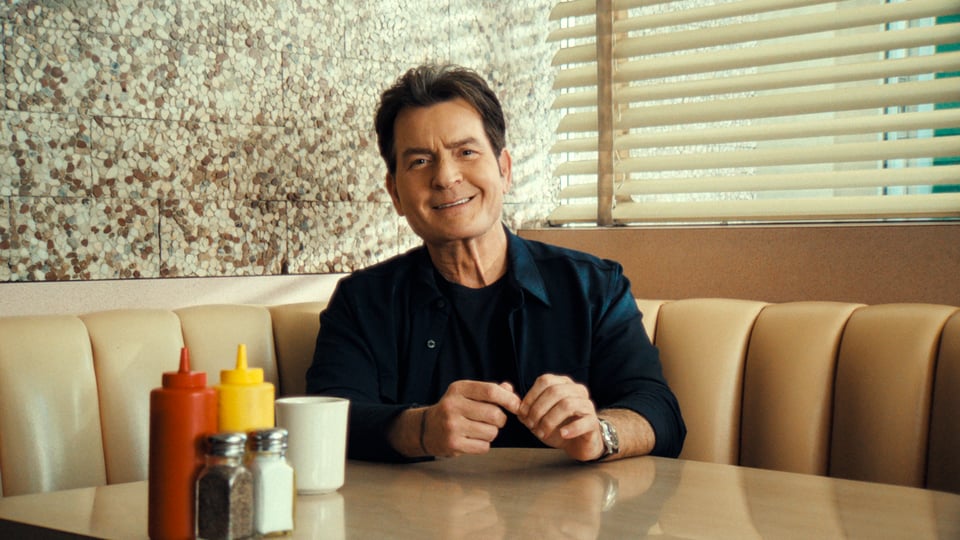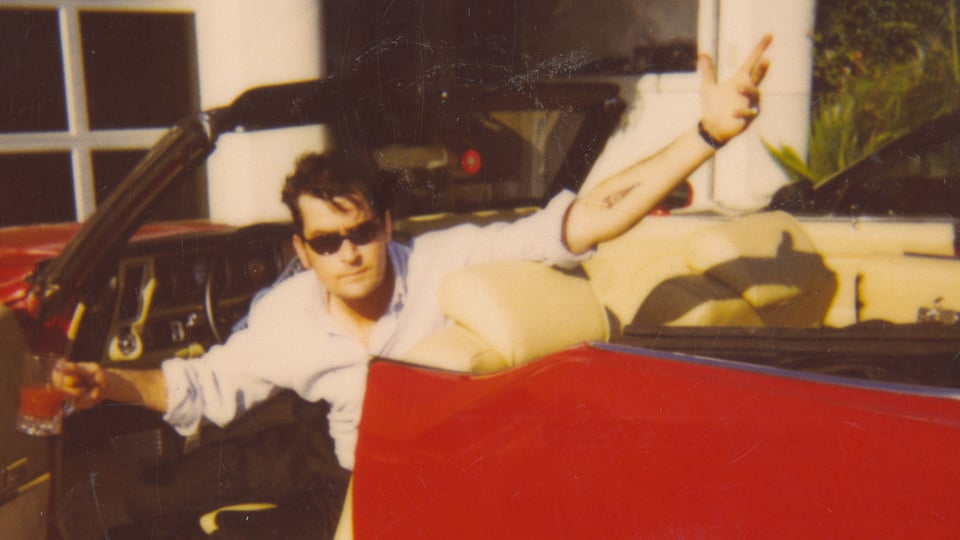Review: “aka Charlie Sheen” on Netflix
Is it a documentary if it's an exercise in celebrity image management?

I remember saying a while back, to no one in particular, that we needed to coin a new term to describe the onslaught of so-called celebrity “documentaries” favored by streaming platforms that are made with the participation of the subject. Someone suggested “docubation” — a portmanteau of “documentary” and “masterbation” — and, honestly? It’s not far off.
Ideally, a documentary is probing and goes to uncomfortable places. Filmmakers can do that when they’re not reliant on the approval of the subject. But that’s rarely the case, which is why these projects feel like an exercise in celebrity image management. That’s true of the two-part “aka Charlie Sheen” on Netflix, in which he spends most of the running time looking back at his many embarrassments and exploits over the years, but offering little introspection.
The son of movie star Martin Sheen, Charlie Sheen became a star in his own right by the age of 21 thanks to a lead role in Oliver Stone’s “Platoon” (1986). A year later, he went mano-a-mano on screen with his father in Stone’s “Wall Street,” cementing his newfound celebrity status. Fast forward two decades and he had shifted to television, on CBS’s “Two and a Half Men,” where he was the highest paid actor on TV at the time, making $1.78 million per episode.
Then in 2011, he was fired from the show because his erratic behavior — much of it the result of his substance abuse — became untenable.
Sheen’s history of problems, which also includes allegations of violence, had been ongoing up to this point. In 2009, he was arrested for assaulting his then-wife Brook Mueller; in her 911 call, she says he had a knife and she feared for her life.
But the ”Two and a Half Men” aftermath was an especially notable period in which he gave a number of interviews where he appeared unstable and said odd but quotable things like:
I have a different constitution, I have a different brain, I have a different heart. I got tiger blood, man. Dying's for fools, dying's for amateurs.
and
"I am on a drug. It's called Charlie Sheen. If you try it once you will die. Your face will melt off and your children will weep over your exploded body.
Then he took his rambling “show” on tour, and it was the worst of both worlds: Audiences gawped at a man clearly in crisis, while Sheen and his handlers exploited it as a money-making opportunity.
He’s been mostly off the radar in the decade or so since.
So why do a documentary now? Maybe he wants to kick-start his career. Or maybe he just wanted to tell his story.
Early on in the documentary, Sheen’s “Two and a Half Men” co-star, Jon Cryer, expresses some trepidation about the project: “Part of the cycle of Charlie Sheen’s life is that he messes up terribly, he hits rock bottom and then he gets things going again and brings a lot of positivity in his life, and that's when he burns himself again. He just can’t help but set that house on fire, and I didn’t want to be part of that cycle. I’m not here to build him up and I’m not here to tear him down.”
I suspect people will watch out of curiosity and to see how he talks about his lowest moments. He’s very good at seeming to reveal all and answering difficult questions from director Andrew Renzi. He’s charming and likable. Of course he is. That magnetism is one reason he became a star. But it’s unclear how much of this is a performance.

He sees his life story as divided into three sections: “Partying, partying with problems, and then just problems.” That sounds a bit too rehearsed and tidy.
Addiction exacerbates problems — so much so that it often becomes the overriding, all-consuming problem. But those other, deeper problems remain, waiting to be worked through. That’s human.
Trying to get at the root of this would have made the documentary feel more thoughtful than it does. Lacking any insight into the issues underneath the addictions, it tends to play like a longer version of that old A&E series “Biography,” but carefully absent any information about his opposition to vaccines, for example, or the time he told Dr. Oz he had stopped taking his HIV medication in favor of “alternative methods,” and other inconvenient truths about Sheen that don’t fit so neatly into this amiable, pretend bare-it-all redemption story.
He was born, he says, with his umbilical cord wrapped around his neck. He seems to trace some of his issues back to this event. Who knows, maybe he’s right: “When your life starts like that — basically doesn’t start — it does a number on your head.”
So does the adulation that comes with celebrity. So does the enabling that clearly existed throughout his life. Even he understands that:
I noticed that there was a pattern — to go through all this shit, come out of the fire and there’d be an opportunity on the immediate other side of it. It really flattened the concept of genuine consequences.
We never hear if Martin Sheen had conversations with his son about his own substance abuse problems, especially on “Apocalypse Now.” Maybe that’s too private to share. Or maybe it didn’t happen. But you notice its absence.
“We’re not taught as children how to deal with success,” the younger Sheen says in an old interview clip. That’s an interesting thing for a nepo baby to assert, because that actually is something a parent who achieved success in Hollywood could try to impart. Certainly watching his father’s career from afar could have helped Sheen learn a few things. The idea that he was blindsided feels disingenuous.
“I was on a level that couldn’t be touched,” he says when his career took off. What does that mean, exactly? More pointedly: What did it mean to him then, and what does it mean to him now?
What did he want both personally and professionally? That doesn’t come up either. He just seems to be floating through life, from opportunity to mess and back again. He has little to say about how his choices affected his relationship with his children. The interview ultimately feels glib and surface-y. It’s one thing to have Sheen recount his lowest moments. But what was — and is — going through his head when he stares up at the ceiling in the dead of night? That’s left unexplored.
He’s not required to share his more intimate thoughts and feelings, but then that pesky question arises again: Why make the documentary?
Why is he even an actor? The way he tells it, he wasn’t much of a student and had no plans for a career until his parents gave him an ultimatum, so he pursued acting. If that didn’t work, he says, he would have gone to school to train for a job behind the camera. That he saw his employment options as “cast” or “crew” is fascinating, as if these were the only professions he ever considered. He probably would have been good at sales, for whatever that’s worth.
A subtext throughout the documentary assumes that fame and success automatically leads to hard partying. That, too, seems reductive.
Cryer: “I don’t know that he believes that he deserves what he has got. I believe that there is a part of him that throws it all away to see if he deserves it.”
This is a long way of saying “imposter syndrome,” and Sheen is far from the only person in Hollywood to suffer from it.
The intensity and glamour of fame — especially early on, before you’ve figured out who you even are — is always outsized in relation to the accomplishment itself. A good performance, hell, a great performance, is fun and exciting, but the energy around celebrating it is always too big, too effusive, too much. Most people’s psyches clock this, consciously or subconsciously. Hence, imposter syndrome.
It feels like a profound tragedy that this wasn’t wisdom Martin Sheen was able to pass onto his son.
“aka Charlie Sheen” is on Netflix.